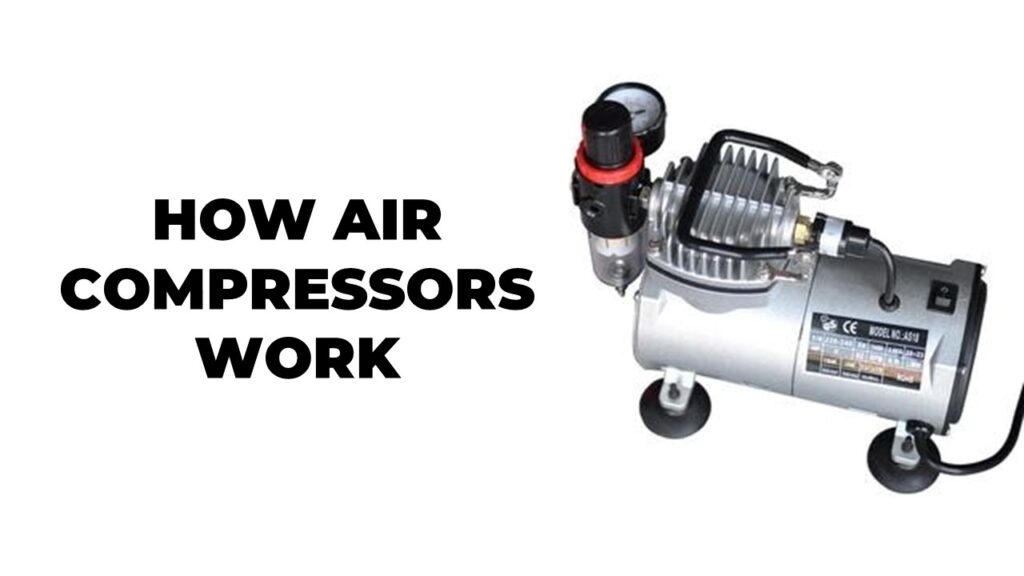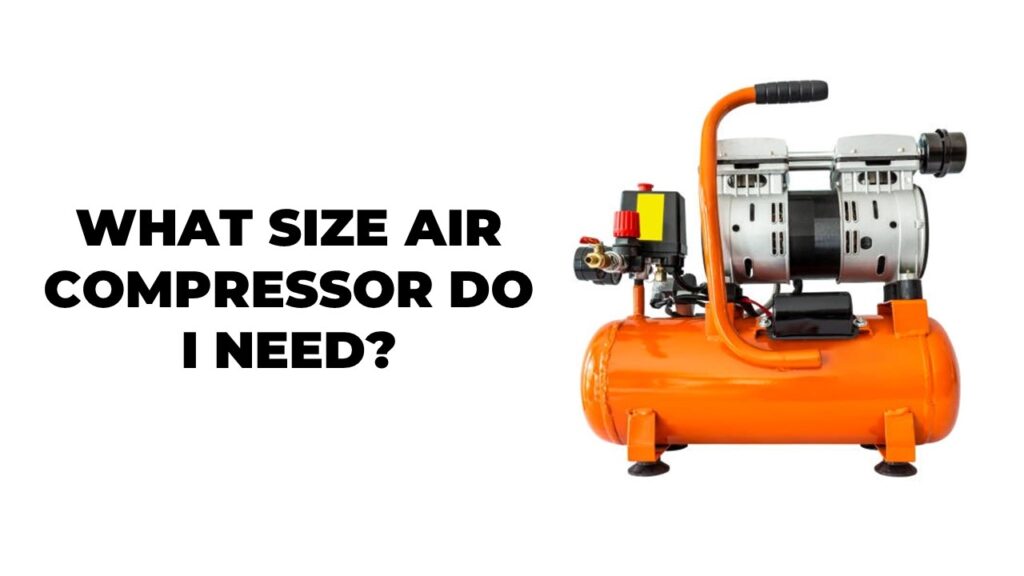
Yes, air compressors can be risky if you don’t use or maintain them properly.
They’re powerful machines that store a lot of pressure, and if something goes wrong, like a burst hose or overheating, it can cause serious injury. That’s why it’s important to follow a few key safety steps.
In this article, we’ll cover simple tips for using your air compressor safely, from setup and operation to regular maintenance. Whether you’re new to compressors or use one often, these basics can help you stay safe and keep your equipment in good shape.
Why Air Compressor Safety Matters
Using compressed air might seem simple, but these machines pack a lot of power. That pressure can cause serious injuries if misused, such as bursting hoses, flying debris, or overheating. Electrical issues, fire risks, and loud noises are also common hazards.
Here’s why paying attention to safety is worth your time:
- Prevents accidents like hose blowouts or oil leaks
- Protects your hearing and eyes from damage
- Avoids costly repairs caused by misuse or poor maintenance
- Keeps your workspace safer for you and others
- Extends your compressor’s life, saving money over time
Pre-Operation Safety Checklist
Before flipping the switch, it’s a good idea to run through a few quick checks. These steps help you catch small issues before they turn into bigger problems.
Read the Manual
Always take a few minutes to go through your compressor’s manual. It tells you what to expect, what parts to check, and how to operate it safely.
Inspect the Equipment
Check for loose bolts, worn-out hoses, oil leaks, or any unusual damage. If anything looks off, fix it before starting the machine.
Check the Oil and Lubrication
Low oil levels or poor lubrication can cause your compressor to overheat or wear out quickly. Top off or replace oil as needed.
Look at the Air Filter
A dirty air filter can make your compressor work harder than it should. If it’s dusty or clogged, clean or swap it out.
Secure All Hoses and Fittings
Make sure all air hoses are tightly connected and not leaking. Leaky fittings waste air and can whip dangerously under pressure.
Close the Drain Valves
Before starting, make sure the tank’s drain valves are shut. Open valves will release pressure and prevent the compressor from building up properly.
Safe Setup and Installation Tips
Once you’ve done your pre-checks, setting things up the right way is the next step to staying safe.
- Place your compressor on a flat, stable surface so it doesn’t tip or vibrate
- Keep it in a well-ventilated area to prevent overheating
- Make sure it’s grounded properly to avoid electric shock
- Avoid placing it near flammable materials like gasoline or oil rags
- Use heavy-duty extension cords sparingly, or not at all—low voltage can damage the motor
- Double-check clearance space around the compressor for air to circulate freely
Safety While Operating Your Air Compressor
Once it’s running, there are a few habits that go a long way in keeping things safe and smooth.
- Wear safety gear like goggles, gloves, and ear protection
- Don’t point the air hose at anyone, not even for fun—it can cause serious injuries
- Keep hands and tools away from moving parts
- Stay alert for strange sounds, smells, or shaking—these can be early signs of a problem
- Never exceed the pressure limits listed on your tools or compressor
- Turn off and unplug the unit when making adjustments, cleaning, or moving it
Maintenance for Long-Term Safety
Taking care of your air compressor isn’t just about performance; it’s also about staying safe. A simple maintenance routine can prevent breakdowns and dangerous situations.
Daily and Weekly Tasks
- Drain water from the tank to avoid rust
- Check oil level and top up if needed (for oil-lubricated models)
- Wipe down surfaces and remove dust buildup
- Look over hoses and fittings for signs of wear
- Listen for odd noises during operation
- Make sure safety valves are not sticking
Monthly and Hour-Based Maintenance
- Change the oil (usually every 500 hours or once a month)
- Clean or replace the air filter
- Inspect belts for cracks or slack
- Tighten loose bolts or screws
- Check motor and pump for signs of wear
- Test safety shutdown systems if your model has them
When to Call a Technician
If your air compressor starts making strange sounds, shuts down unexpectedly, or doesn’t hold pressure like it used to, those are warning signs. You might also notice overheating or constant tripping of circuit breakers.
While you can handle the basic upkeep, bigger issues like motor trouble, valve failure, or electrical faults should be left to a pro.
Trying to fix these without the right knowledge can be risky and may damage your machine even more. A certified technician can spot problems early and make sure your compressor runs safely for years.
Common Mistakes to Avoid
It’s easy to forget some small details that can turn into big safety problems. Here are a few common things people get wrong:
- Using the wrong type of oil
- Ignoring leaks or odd noises
- Letting water build up in the tank
- Overloading tools beyond pressure limits
- Running it with a dirty air filter
- Skipping regular inspections
- Leaving it plugged in and pressurized overnight
Conclusion
Air compressors are incredibly useful, but they can be dangerous if not handled properly. A few simple habits—like checking for leaks, using safety gear, and keeping up with maintenance—can help keep you safe.
Whether you’re using one at home or on the job, treating your compressor with care helps it last longer and keeps accidents from happening. Safety and performance go hand in hand, and a well-maintained compressor gives you both.
FAQs
Do air compressors explode?
It’s rare, but they can rupture if the pressure gets too high or if the tank rusts out. That’s why it’s important to drain moisture and check safety valves.
Is it safe to leave an air compressor on overnight?
No, it’s not a good idea. You should turn it off and unplug it when you’re done using it. Leaving it on could lead to overheating or leaks while unattended.
How often should I inspect my compressor?
Give it a quick once-over before every use. Do a deeper check weekly, and follow the manufacturer’s schedule for monthly or hour-based tasks.
What PPE should I wear with an air compressor?
At the very least, wear safety glasses and ear protection. Gloves and sturdy shoes are also smart, especially if you’re working in a busy shop or garage.

At our core, we’re a group of passionate power tolls enthusiasts. We dive deep into the world of mechanics and tools. We try to provide as much value to the readers with our information and how to blog articles as possible along with proper information-based reviews as well.




